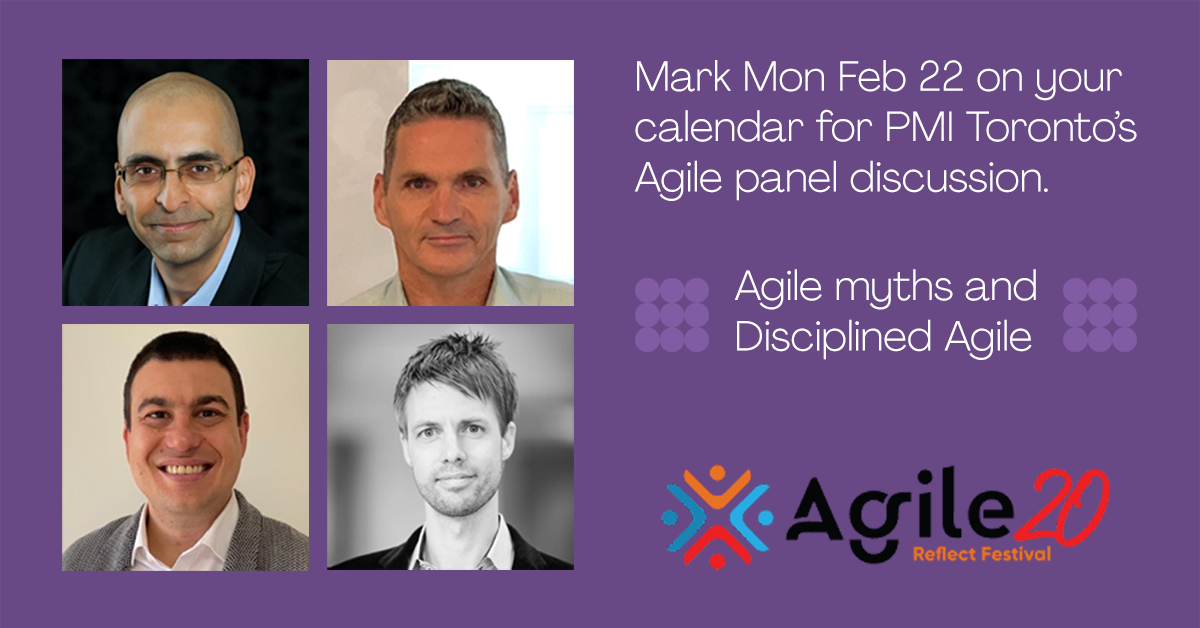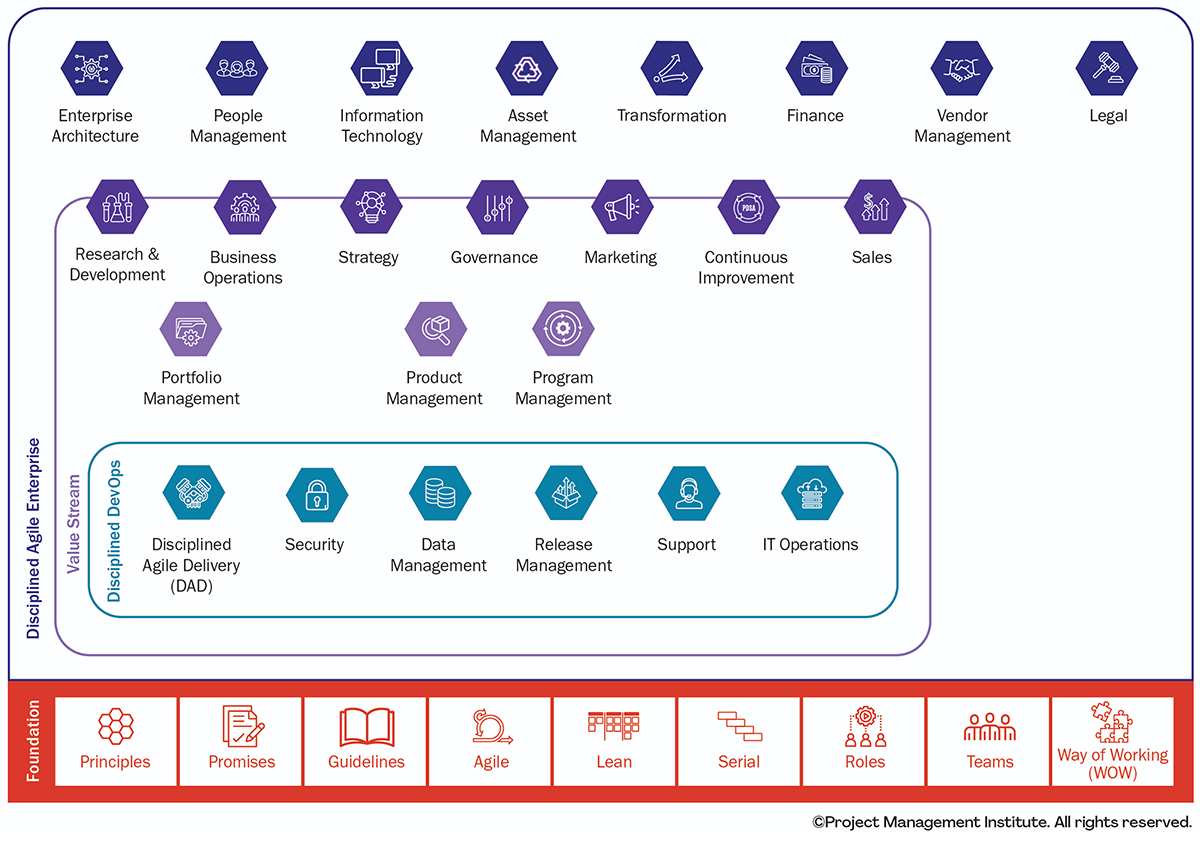11 March at 10:00AM
Celebrating Disciplined Agile and its Impact over 20 Years
It is hard to believe that agile practices have been around for 20 years! In fact the Agile Manifesto was published in February 2001. As we celebrated this milestone during the Global Agile20 Reflect Festival Event, Using Disciplined Agile to Fill Potholes Along the Highway to Greater Agility, leading agile experts shared the continued importance of agile principles and dispelled some of the myths and challenges Disciplined agilists may face.
Presenters included:
Kiron D Bondale, Daniel Gagnon, Eduardo Martins, and Klaus Boedker.

What is Disciplined Agile?
Disciplined Agile (DA) increases transparency, shortens timeframes, encourages self-managed teams, increases flexibility on scope, and aligns with enterprise standards. DA is a critical thinking process that
> Is a process-decision and person-driven toolkit
> Gives PMs choices to guide process improvements
> Incorporates many ideas & frameworks (e.g., Scrum, Kanban, SAFe®)
> Is supported by a multi-level certification program

Busting those Disciplined Agile Myths
Disciplined Agile incorporates many principles, values, and frameworks. It is not just one way to get things done. DA allows you to use the best methods and tools that fit for your situation. The myths that arise with DA are:
Myth 1: Agile is a silver bullet
There is no one solution to solve a problem. DA is a journey that gives you options to find the best way to resolve issues. DA incorporates enterprise awareness and guided continuous improvement.
Myth 2: Agile = Sprints (or Scrum, or XP or…)
DA is not tied to any specific set of practices—a sprint is a practice. What may work for one team may not work for another. DA takes a continuous flow-based approach using different tools to get results. Three principles to remember are
- Context matters
- Be pragmatic
- Guided choice is good
Myth 3: Agile means no planning, governance, or documentation
Reflecting on the Agile Manifesto it specified that there are four core values but we really rely on eight values:
Individuals and interactions ↔ Over processed and tools
Working software ↔ Over comprehensive documentation
Customer collaboration ↔ Over contract negotiations
Responding to change ↔ Over following a plan
In DA we do what is right, not what is easy.
Myth 4: If it works for one team it works for all
One size does not fit all. DA has multiple approaches and doesn’t use one framework to achieve goals. Look at individual teams and see what context fits with how they work. Just because one team is working in a certain way doesn’t mean your team will succeed as they did. Focus on what will work best for your team.
Myth 5: Agile only affects delivery teams
DA is for all types of teams. Your agile practices will look different from delivery teams. When teams build up their agility they are incorporating agile and lean practices to support their team and others in the organization.
Learn More about Disciplined Agile
The path to agility is continuous and requires practice! PMI Toronto continues to support professional development for its members with the upcoming workshop, Disciplined Agile Scrum Master (DASM), led by Kiron D. Bondale. If you are interested in learning more about DA, DASM, and upcoming sessions please visit the Events Calendar page.



